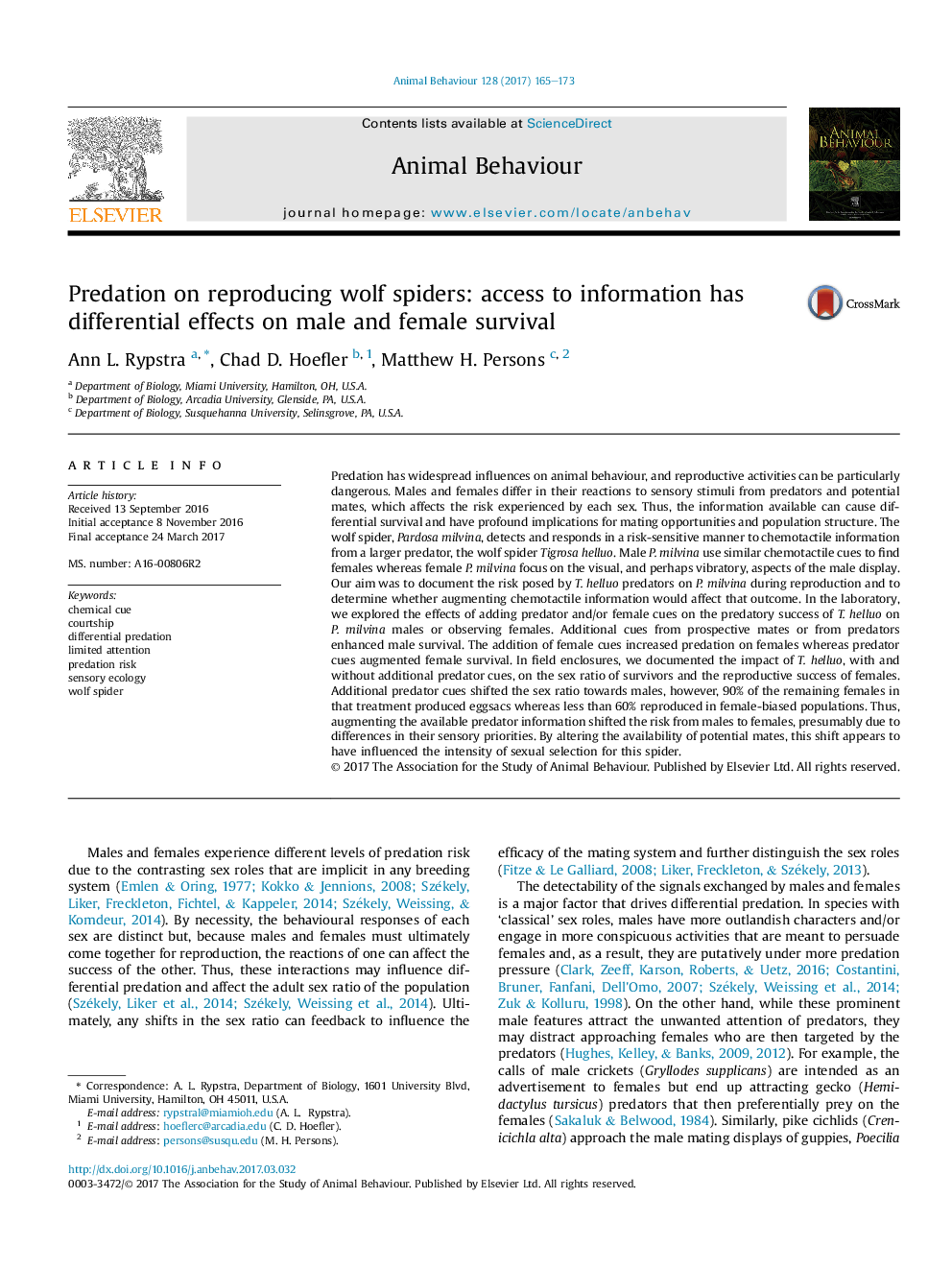ترجمه فارسی عنوان مقاله
پیشبرد بازسازی عنکبوت گرگ: دسترسی به اطلاعات تأثیرات متفاوتی بر بقای زن و مرد دارد
عنوان انگلیسی
Predation on reproducing wolf spiders: access to information has differential effects on male and female survival
| کد مقاله | سال انتشار | تعداد صفحات مقاله انگلیسی |
|---|---|---|
| 133544 | 2017 | 9 صفحه PDF |
منبع

Publisher : Elsevier - Science Direct (الزویر - ساینس دایرکت)
Journal : Animal Behaviour, Volume 128, June 2017, Pages 165-173
ترجمه کلمات کلیدی
نشانه شیمیایی، نگاه کردن افسردگی دیفرانسیل، توجه محدود، رشوه دادن اکولوژی حسی، عنکبوت گرگ،
کلمات کلیدی انگلیسی
chemical cue; courtship; differential predation; limited attention; predation risk; sensory ecology; wolf spider;

